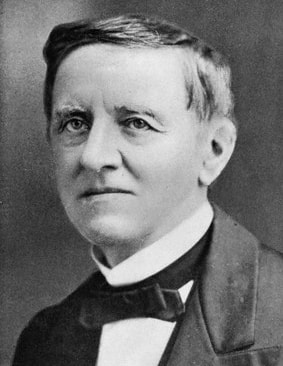 A union protested that an arbitrator, in the guise of correcting a “technical” error with his original award, in fact revised its substance in a way contrary to the applicable arbitration rules. The Fifth Circuit disagreed: “To the contrary, he cited [AAA] Rule 40, classified his error as a “technical” one capable of correction, and held that his correction did not violate Rule 40, notwithstanding the Union’s argument that he was “redetermin[ing] the merits” of CWA’s claim against the Company. Even if the arbitrator made a mistake in reaching his conclusion, “[t]he potential for . . . mistakes is the price of agreeing to arbitration. . . . The arbitrator’s construction holds, however good, bad, or ugly.” Communication Workers of America v. Southwestern Bell, No. 19-50686 (March 27, 2020) (citations omitted).
A union protested that an arbitrator, in the guise of correcting a “technical” error with his original award, in fact revised its substance in a way contrary to the applicable arbitration rules. The Fifth Circuit disagreed: “To the contrary, he cited [AAA] Rule 40, classified his error as a “technical” one capable of correction, and held that his correction did not violate Rule 40, notwithstanding the Union’s argument that he was “redetermin[ing] the merits” of CWA’s claim against the Company. Even if the arbitrator made a mistake in reaching his conclusion, “[t]he potential for . . . mistakes is the price of agreeing to arbitration. . . . The arbitrator’s construction holds, however good, bad, or ugly.” Communication Workers of America v. Southwestern Bell, No. 19-50686 (March 27, 2020) (citations omitted).
Monthly Archives: March 2020
In Bradley v. Ackal, the Fifth Circuit reversed the sealing of an on-the-record proceeding involving the settlement of a minor’s claim connected to a police shooting. The Court reminded: “’In exercising its discretion to seal judicial records, the court must balance the public’s common law right of access against the interests favoring nondisclosure.’ But, ‘[t]he presumption however gauged in favor of public access to judicial records[]’ [is] one of the interests to be weighed on the [public’s] “side of the scales.”‘ No. 18-31052 (March 23, 2020) (citations omitted).
An unsuccessful motion to compel arbitration did not fare better on appeal when:
- The question of who decides arbitrability was not raised in the motion (and was thus forfeited for appeal purposes);
- Equitable estoppel was briefed in the motion with reference to authority about “concerted misconduct estoppel” – theory rejected by the Texas Supreme Court;
- Direct benefits estoppel was unavailable because the plaintiffs sued under federal employment law, not their state-law employment agreements;
- Third party beneficiary status was not available because the movant was not named in the agreement, while the entity that actually had hired the plaintiffs was.
Hiser v. NZone Guidance LLC, No. 19-50353 (March 24, 2020) (unpublished).
The appellant in North Cypress Medical Center Operating Co. v. Cigna Healthcare argued that the district court failed to follow the law of the case as established by an earlier Fifth Circuit panel, citing a paragraph in the panel’s opinion that described the two-step process for resolving a particular ERISA issue. The Fifth Circuit disagreed: “This general statement of the law, expressed in terms of the facts of the case, is no mandate at all. Nor is it a statement of the whole law regarding review of ERISA benefit decisions. The court’s summary omits mention of [two key cases], in which this court established that a party may skip the legal correctness inquiry and proceed to consider
whether the plan administrator abused its discretion, as outlined in [the prior panel opinion]. The [prior] panel did not deny the authority of [those cases] (nor could it).
Accordingly, the district court properly relied on [those cases] in skipping the legal correctness analysis. In so doing, the court did not violate the law of the case and committed no error.” No. 18-20576 (March 18, 2020).
 DISH Network declared an impasse after lengthy negotiations with the Communication Workers of America. The NLRB rejected that declaration; the Fifth Circuit reversed the NLRB’s factual determination: “The Board’s decision rested on its determination that the Union’s November 2014 counterproposal was a ‘white flag’ of surrender. But the ‘white flag’ characterization in turn rested on an unsound factual foundation from the ALJ” about how unionized employees reacted to a particular compensation system as compared to nonunionized ones. DISH Network Corp. v. NLRB (revised March 24, 2020).
DISH Network declared an impasse after lengthy negotiations with the Communication Workers of America. The NLRB rejected that declaration; the Fifth Circuit reversed the NLRB’s factual determination: “The Board’s decision rested on its determination that the Union’s November 2014 counterproposal was a ‘white flag’ of surrender. But the ‘white flag’ characterization in turn rested on an unsound factual foundation from the ALJ” about how unionized employees reacted to a particular compensation system as compared to nonunionized ones. DISH Network Corp. v. NLRB (revised March 24, 2020).
 A Houston-based engineering firm negotiated a contract with a New Jersey town. The town then sought to avoid paying, arguing that no contract had been formed because it had not obtained proper approvals as required by New Jersey’s statutes about public contracts. The firm countered that the parties’ agreement had a Texas choice-of-law provision, which should also control as to contract formation. Noting that while this dispute seemed to form a “chicken-or-the-egg problem,” the Fifth Circuit ruled for the town as “the choice-of-law provision has force only if the parties validly formed a contract.” It remanded for consideration of potential quantum meruit liability. EHRA Engineering v. Downe Township, No. 19-20176 (March 19, 2020).
A Houston-based engineering firm negotiated a contract with a New Jersey town. The town then sought to avoid paying, arguing that no contract had been formed because it had not obtained proper approvals as required by New Jersey’s statutes about public contracts. The firm countered that the parties’ agreement had a Texas choice-of-law provision, which should also control as to contract formation. Noting that while this dispute seemed to form a “chicken-or-the-egg problem,” the Fifth Circuit ruled for the town as “the choice-of-law provision has force only if the parties validly formed a contract.” It remanded for consideration of potential quantum meruit liability. EHRA Engineering v. Downe Township, No. 19-20176 (March 19, 2020).
 Surprising no one, the constitutional challenge to the CFPB’s structure presented by CFPB v. All American Check Cashing will be reviewed en banc by the full Fifth Circuit.
Surprising no one, the constitutional challenge to the CFPB’s structure presented by CFPB v. All American Check Cashing will be reviewed en banc by the full Fifth Circuit.
This is a cross-post from 600Commerce, which follows the Dallas Court of Appeals.
 One Dallas Court of Appeals case addresses the breach-of-contract defense of impracticability, Hewitt v Biscaro, 353 S.W.3d 304 (Tex. App.—Dallas 2011, no pet.). Relevant to the current crisis, it involves a government order that allegedly made performance more difficult. The Court examined whether:
One Dallas Court of Appeals case addresses the breach-of-contract defense of impracticability, Hewitt v Biscaro, 353 S.W.3d 304 (Tex. App.—Dallas 2011, no pet.). Relevant to the current crisis, it involves a government order that allegedly made performance more difficult. The Court examined whether:
- the performance issue was a basic assumption of the contract;
- the government’s action was an official order or regulation (in that case, the SEC’s contact with the defendant was not); and
- the defendant was acting in good faith.
The Court relied on an earlier Texas Supreme Court case and the relevant Restatement (Second) of Contracts provision. Application of this opinion will be important in upcoming commercial disputes created by the novel coronavirus.
 This is a cross-post from 600Hemphill, which follows the Texas Supreme Court:
This is a cross-post from 600Hemphill, which follows the Texas Supreme Court:
Henry McCall lived in a cabin on Homer Hillis’s property, occasionally helping Hillis with maintenance at the McCall’s bed-and-breakfast. While working on Hillis’s sink, a brown recluse spider bit McCall. The Texas Supreme Court found that  the ferae naturae doctrine barred McCall’s lawsuit against Hillis: “[H]e owed no duty to the invitee because he was unaware of the presence of brown recluse spiders on his property and he neither attracted the offending spider to his property nor reduced it to his possession. Further, [McCall] had actual knowledge of the presence of spiders on the property.” Hillis v. McCall, No. 18-1065 (Tex. March 13, 2020). In addition to its impact on brown-recluse litigation, the reasoning of this opinion about liability for small, dangerous creatures well be relevant in any future litigation about coronavirus exposure.
the ferae naturae doctrine barred McCall’s lawsuit against Hillis: “[H]e owed no duty to the invitee because he was unaware of the presence of brown recluse spiders on his property and he neither attracted the offending spider to his property nor reduced it to his possession. Further, [McCall] had actual knowledge of the presence of spiders on the property.” Hillis v. McCall, No. 18-1065 (Tex. March 13, 2020). In addition to its impact on brown-recluse litigation, the reasoning of this opinion about liability for small, dangerous creatures well be relevant in any future litigation about coronavirus exposure.
Rogers, a collection agency, wrote Salinas, stating the amount due ($4629.96)
and the interest and fees due ($0.00). The letter also said: “In the event there is interest or other charges accruing on your account, the amount due may be greater than the  amount shown above after the date of this notice.”
amount shown above after the date of this notice.”
The Fifth Circuit held that, while its precedent had not squarely addressed “conditional” language such as “in the event,” Rogers’s letter was not deceptive. “Salinas reads it to imply the possibility that interest or other charges may accrue when in fact they cannot,” noted the Court, but “[a]n illustration shows the problem with Salinas’ reading of the letter”:
Suppose a traveler boards a flight from El Paso, TX, to Tucson, AZ—a route traversing only desert—and is shown a safety video describing steps to take “in the event of a water landing.” Even the least sophisticated traveler would not take the video to imply the plane would be flying over water. No passenger would leap out of his seat in panic, concluding he had boarded the wrong flight. Even a traveler “tied to the very last rung on the intelligence or sophistication ladder” would interpret the video as merely acknowledging the reality that some flights, if not this one, fly over water.
Salinas v. R.A. Rogers Inc., No. 19-50618 (March 12, 2020).
 Casalicchio received a pre-foreclosure notice that “contained a deadline thirty days from the day the notice was printed, even though the deed of trust called for a deadline thirty days from the day the letter was mailed.” (emphasis in original). Unfortunately for Casalicchio, while the Fifth Circuit acknowledged older Texas cases that refer to an “absolute” right to “strict compliance” with a deed of trust, the Court concluded: “Since the 1980s, the Texas Supreme Court has repeatedly moderated its rule that the ‘terms of a deed of trust must be strictly followed,’ clarifying recently that harmless mistakes do not void otherwise-valid foreclosure sales.” The defect in his notice was thus “but a ‘minor defect,’ insufficiently prejudicial to justify setting aside an otherwise valid foreclosure sale.” Casalacchio v. BOKF, N.A., No. 19-20246 (March 6, 2020) (applying, inter alia, Hemyari v. Stephens, 355 S.W.3d 623 (Tex. 2011)).
Casalicchio received a pre-foreclosure notice that “contained a deadline thirty days from the day the notice was printed, even though the deed of trust called for a deadline thirty days from the day the letter was mailed.” (emphasis in original). Unfortunately for Casalicchio, while the Fifth Circuit acknowledged older Texas cases that refer to an “absolute” right to “strict compliance” with a deed of trust, the Court concluded: “Since the 1980s, the Texas Supreme Court has repeatedly moderated its rule that the ‘terms of a deed of trust must be strictly followed,’ clarifying recently that harmless mistakes do not void otherwise-valid foreclosure sales.” The defect in his notice was thus “but a ‘minor defect,’ insufficiently prejudicial to justify setting aside an otherwise valid foreclosure sale.” Casalacchio v. BOKF, N.A., No. 19-20246 (March 6, 2020) (applying, inter alia, Hemyari v. Stephens, 355 S.W.3d 623 (Tex. 2011)).
 What is a “sole, superseding cause”? BP Exploration v. Claimaint ID 100191715 did not resolve the question, but found an argument sufficiently credible to require a remand for further review in the Deepwater Horizon claims process: “BP argues that Claimant passed the V-Shaped Revenue Pattern due solely to a price spike and drop in the price of fertilizer that was unrelated to the oil spill. According to BP, the spike caused Claimant’s revenues to soar and crash back down to normal rates thereafter. And, only because Claimant used months during the price spike as its benchmark period was it able to satisfy the ‘V-Shape Revenue Pattern’ test in Exhibit 4B. In other words, Claimant’s loss was not due to the spill; rather, the price spike in fertilizer was the sole, superseding cause for its loss.” No. 19-30264 (March 3, 2020).
What is a “sole, superseding cause”? BP Exploration v. Claimaint ID 100191715 did not resolve the question, but found an argument sufficiently credible to require a remand for further review in the Deepwater Horizon claims process: “BP argues that Claimant passed the V-Shaped Revenue Pattern due solely to a price spike and drop in the price of fertilizer that was unrelated to the oil spill. According to BP, the spike caused Claimant’s revenues to soar and crash back down to normal rates thereafter. And, only because Claimant used months during the price spike as its benchmark period was it able to satisfy the ‘V-Shape Revenue Pattern’ test in Exhibit 4B. In other words, Claimant’s loss was not due to the spill; rather, the price spike in fertilizer was the sole, superseding cause for its loss.” No. 19-30264 (March 3, 2020).
 The ground rules for the administrative state are few, important, and vexingly difficult to apply. The en banc court confronted the structure of Fannie Mae’s regulator, the Federal Housing Finance Agency, in Collins v. Mnuchin, 938 F.3d 553 (5th Cir. 2019), and found it wanting constitutionally. In CFPB v. All American Check Cashing, a panel majority confronted the structure of another Great Recession entity, the Consumer Finance Protection Board, and concluded that “neither the text of the Constitution nor the Supreme Court’s previous decisions support the Appellants’ arguments that the CFPB is unconstitutionally structured.” No. 18-60302 (March 3, 2020).
The ground rules for the administrative state are few, important, and vexingly difficult to apply. The en banc court confronted the structure of Fannie Mae’s regulator, the Federal Housing Finance Agency, in Collins v. Mnuchin, 938 F.3d 553 (5th Cir. 2019), and found it wanting constitutionally. In CFPB v. All American Check Cashing, a panel majority confronted the structure of another Great Recession entity, the Consumer Finance Protection Board, and concluded that “neither the text of the Constitution nor the Supreme Court’s previous decisions support the Appellants’ arguments that the CFPB is unconstitutionally structured.” No. 18-60302 (March 3, 2020).
 A concurrence elaborated: “The President can remove the CFPB Director only for ‘inefficiency, neglect of duty, or malfeasance in office,’ a broad standard repeatedly approved by the Supreme Court. That alone is enough to decide this case. If there is any threat of undue concentration of power, the Office of President is its beneficiary.” A dissent faulted the majority’s reasoning and the judicial process employed: “Collins winds up in the dustbin because two judges say it should. At one time, those judges thought it beyond the pale ‘to rely on strength in numbers rather than sound legal principles in order to reach their desired result in [a] specific case.’ Now, they suddenly discover that stare decisis is for suckers.” (footnotes omitted).
A concurrence elaborated: “The President can remove the CFPB Director only for ‘inefficiency, neglect of duty, or malfeasance in office,’ a broad standard repeatedly approved by the Supreme Court. That alone is enough to decide this case. If there is any threat of undue concentration of power, the Office of President is its beneficiary.” A dissent faulted the majority’s reasoning and the judicial process employed: “Collins winds up in the dustbin because two judges say it should. At one time, those judges thought it beyond the pale ‘to rely on strength in numbers rather than sound legal principles in order to reach their desired result in [a] specific case.’ Now, they suddenly discover that stare decisis is for suckers.” (footnotes omitted).
 An exceptionally clear example of “virtual representation” for res judicata purposes appears in Butler v. Endeavor Air, Inc., No. 19-20304 (March 4, 2020).
An exceptionally clear example of “virtual representation” for res judicata purposes appears in Butler v. Endeavor Air, Inc., No. 19-20304 (March 4, 2020).
Butler unsuccessfully sued Delta Airlines in state court about difficulties his daughter experienced on a flight. Final judgment was entered for Delta after a partial summary judgment and a jury trial.
 Butler also sued Endeavor Airlines–a Delta subsidiary that operated the flight in question. Delta had stipulated, in both cases (it had at one point been named in the second case) that it would accept any liability assigned to Endeavor.
Butler also sued Endeavor Airlines–a Delta subsidiary that operated the flight in question. Delta had stipulated, in both cases (it had at one point been named in the second case) that it would accept any liability assigned to Endeavor.
The district court found the Endeavor suit was barred by res judicata and the Fifth Circuit. Delta was Endeavor’s “virtual representative” in the first action given their parent-subsidiary relationship, the same set of facts involved in both cases, and Delta’s stipulation.
 Rules of procedure require precision in pleading a cause of action. The eight-corners rule of insurance coverage, in contrast, often rewards imprecision. A powerful example appears in Allied World Specialty Ins. Co. v. McCathern, PLLC, a duty-to-defend claim arising from a legal malpractice claim, where the Fifth Circuit held: “The allegations that McCathern did not monitor the file, conduct legal research, or communicate with the client are factual assertions—as opposed to causes of action—even if they are vague. Allied World’s challenge to the factual allegations thus seems to be that they are not specific enough or may not prove true. But at the duty-to-defend stage it is not for us to say whether West Star will be able to prove that McCathern was negligent in failing to monitor the personal injury suit or in failing to research legal issues.” No. 17-10615 (Feb. 26, 2020, unpublished).
Rules of procedure require precision in pleading a cause of action. The eight-corners rule of insurance coverage, in contrast, often rewards imprecision. A powerful example appears in Allied World Specialty Ins. Co. v. McCathern, PLLC, a duty-to-defend claim arising from a legal malpractice claim, where the Fifth Circuit held: “The allegations that McCathern did not monitor the file, conduct legal research, or communicate with the client are factual assertions—as opposed to causes of action—even if they are vague. Allied World’s challenge to the factual allegations thus seems to be that they are not specific enough or may not prove true. But at the duty-to-defend stage it is not for us to say whether West Star will be able to prove that McCathern was negligent in failing to monitor the personal injury suit or in failing to research legal issues.” No. 17-10615 (Feb. 26, 2020, unpublished).
 J&J Sports v. Enola Investments, a dispute about an unauthorized broadcast of the most recent “Fight of the Century” (Mayweather v. Pacquiao in 2015) led to a muddled record as to how the bar in question rebroadcast the fight:
J&J Sports v. Enola Investments, a dispute about an unauthorized broadcast of the most recent “Fight of the Century” (Mayweather v. Pacquiao in 2015) led to a muddled record as to how the bar in question rebroadcast the fight:
“There is conflicting evidence about how the Lounge broadcast the Fight. Small claimed that an employee streamed the Fight over the internet, but J & J’s investigator testified that internet streaming typically results in lower quality video than the high definition broadcast he saw at the Lounge. J & J’s corporate representative also testified that the Fight was not available to commercial establishments via internet streaming. But J & J’s investigator muddled the waters by stating that he did not see cable or satellite equipment at the Lounge. And now, on appeal, defendants claim that the Lounge received the Fight via cable because Enola maintained a business account with Comcast. The only undisputed evidence is that the Fight was originally transmitted via satellite.”
This record required affirmance under the applicable standard: “The district court thus had several plausible options to choose from—satellite, internet, or cable. And when ‘there are two permissible views of the evidence, the fact-finder’s choice between them cannot be clearly erroneous.'” (citations omitted). No. 19-20458 (Feb. 28, 2020, unpublished).
 The 2016 Presidential election, one of only five since 1824 when the Electoral College winner lost the popular vote, led to nationwide debate about the College, which in turn led to LULAC v. Abbott – a constitutional challenge to the “Winner Take All” law in Texas that assigns all the state’s electoral votes to the candidate who wins that state’s popular vote. The Fifth Circuit rejected a “one-person, one-vote” challenge to WTA based on a 1969 three-judge opinion that the Supreme Court summarily affirmed, and has not overruled or limited since. It also rejected a challenge based on right-of-association grounds, observing: “[A]ny disadvantage they allege is solely a consequence of their lack of electoral success. But ‘the function of the election process is to winnow out and finally reject all but the chosen candidates.'” No. 19-50214 (Feb. 26, 2020) (citations omitted). (Above, the unfortunate Samuel Tilden, the only Presidential candidate in history to lose despite receiving an outright majority – not just a plurality – of the popular vote).
The 2016 Presidential election, one of only five since 1824 when the Electoral College winner lost the popular vote, led to nationwide debate about the College, which in turn led to LULAC v. Abbott – a constitutional challenge to the “Winner Take All” law in Texas that assigns all the state’s electoral votes to the candidate who wins that state’s popular vote. The Fifth Circuit rejected a “one-person, one-vote” challenge to WTA based on a 1969 three-judge opinion that the Supreme Court summarily affirmed, and has not overruled or limited since. It also rejected a challenge based on right-of-association grounds, observing: “[A]ny disadvantage they allege is solely a consequence of their lack of electoral success. But ‘the function of the election process is to winnow out and finally reject all but the chosen candidates.'” No. 19-50214 (Feb. 26, 2020) (citations omitted). (Above, the unfortunate Samuel Tilden, the only Presidential candidate in history to lose despite receiving an outright majority – not just a plurality – of the popular vote).
 Faced with “extraordinarily confused” case law within the Circuit about the federal-officer removal statute (28 USC sec. 1442(a)(1)), the en banc Court’s opinion in Latiolais v. Huntington Ingalls is intended to “strip away the confusion, align with sister circuits, and rely on the plain language of the statute, as broadened in 2011.” The new test requires a defendant to show: “(1) it has asserted a colorable federal defense, (2) it is a ‘person’ within the meaning of the statute, (3) that has acted pursuant to a federal officer’s directions, and (4) the charged conduct is connected or associated with an act pursuant to a federal officer’s directions.” It abandons a previously-recognized “causal nexus” requirement. Accordingly, the defendant shipbuilder “was entitled to remove this negligence case filed by a former Navy machinist because of his exposure to asbestos while the Navy’s ship was being repaired at the Avondale shipyard under a federal contract.” No. 18-30652 (Feb. 24, 2020). (Above, the formidable bow of the U.S.S. Somerset, the last ship launched from the long-serving shipyard.)
Faced with “extraordinarily confused” case law within the Circuit about the federal-officer removal statute (28 USC sec. 1442(a)(1)), the en banc Court’s opinion in Latiolais v. Huntington Ingalls is intended to “strip away the confusion, align with sister circuits, and rely on the plain language of the statute, as broadened in 2011.” The new test requires a defendant to show: “(1) it has asserted a colorable federal defense, (2) it is a ‘person’ within the meaning of the statute, (3) that has acted pursuant to a federal officer’s directions, and (4) the charged conduct is connected or associated with an act pursuant to a federal officer’s directions.” It abandons a previously-recognized “causal nexus” requirement. Accordingly, the defendant shipbuilder “was entitled to remove this negligence case filed by a former Navy machinist because of his exposure to asbestos while the Navy’s ship was being repaired at the Avondale shipyard under a federal contract.” No. 18-30652 (Feb. 24, 2020). (Above, the formidable bow of the U.S.S. Somerset, the last ship launched from the long-serving shipyard.)